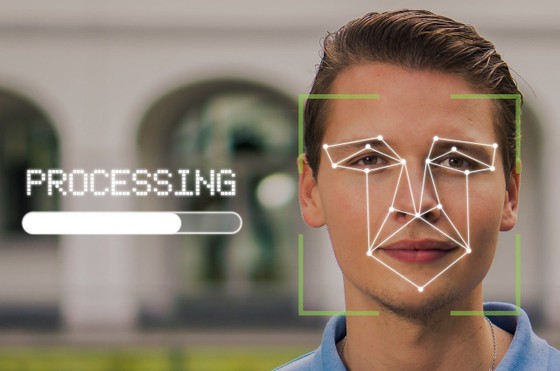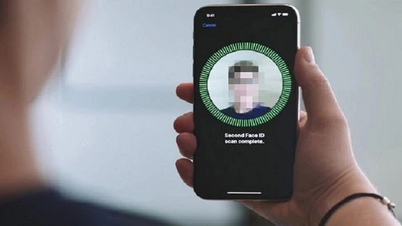SGGP
Despite being one of the world's busiest airports, traveling through Singapore's Changi Airport could be much more convenient from 2024 onwards, as Singaporean citizens and visitors will no longer need to present passports for immigration procedures. Instead, their identities will be verified using biometric data.
The future of aviation
The Parliament of the "Lion City" has just passed a law allowing travel without a passport, effective as early as the first half of 2024. According to Singapore's Minister for Communications, Josephine Teo: "Singapore will be one of the first countries in the world to adopt an automatic, passport-free entry process."
According to the plan, passengers' biometric data will be used to generate a unique authentication code that will be used at various automated contact points throughout the airport, including baggage drop-off, immigration, and boarding. “This will reduce the need for passengers to constantly present their travel documents at contact points, allowing for a more seamless and convenient customs clearance process,” said Josephine Teo.
 |
Facial recognition technology is being widely used. |
Changi isn't the only airport eliminating passports. From November onwards, people passing through Terminal 3 at Dubai Airport in the United Arab Emirates will also be able to check in, go through security, and board without presenting a passport. Observers believe that seamless transportation is becoming increasingly popular worldwide, and biometric identification technology could soon become the future of air travel.
Last July, the Transport and Tourism Forum of Australia (TFF) called on the governments of Australia and New Zealand to establish a joint task force to develop a seamless border. The TFF proposed reforms for travel between the two countries, including the use of facial recognition technology to eliminate the need to present boarding passes and passports, thus speeding up customs clearance.
In fact, facial recognition technology has been used to varying degrees at many airports around the world, such as Narita and Haneda in Tokyo (Japan), Heathrow in London (UK), and Charles de Gaulle in Paris (France). In the US, airlines such as American Airlines, United Airlines, and Delta Airlines have been experimenting with biometric check-in services for the past few years.
Potential risks
Regarding privacy and cybersecurity, Ms. Josephine Teo stated that only Singaporean companies are permitted to undertake IT projects related to the Immigration and Checkpoints Authority (ICA). Service providers will be bound by an agreement and may face criminal liability for breaches. For flights departing from Changi Airport using biometric customs clearance, Changi Airport Group will have to share data with the ICA.
Passenger data will be encrypted and routed through secure data exchange gateways. Only with the approval of the Singapore Minister for Home Affairs will requests for access and disclosure of data for the limited purposes outlined in Singapore's Immigration Act be made.
However, Professor Katina Michael of the School of Information and Computer Technology at the University of Wollongong (Australia) argues that passengers may still face risks to sensitive data simply for the sake of convenience. “Biometric data (eyes, fingerprints, face) is encrypted during storage to prevent unauthorized access. Yet, we have experienced breaches and theft of biometric data,” said Professor Michael. According to the professor, the possibility of biometric data being subsequently sold on dark web sites or used to create deepfakes (a technique using artificial intelligence to create fake or misleading images, audio, and video) is entirely plausible.
But this isn't Professor Michael's only concern. “There will be cases where the data scans fail, and then what happens? Someone might be questioned, but they really can't prove their identity without carrying any documents,” Professor Michael said. Professor Michael cautioned against completely eliminating physical passports. “There’s no problem with using biometrics, but authorities should also give individuals the right to prove who they are through their physical identification documents,” she noted.
Source





![[Photo] Prime Minister Pham Minh Chinh presides over the conference announcing the establishment of the International Finance Centre in Vietnam.](/_next/image?url=https%3A%2F%2Fvphoto.vietnam.vn%2Fthumb%2F1200x675%2Fvietnam%2Fresource%2FIMAGE%2F2025%2F12%2F21%2F1766309817714_ndo_br_dsc-3400-jpg.webp&w=3840&q=75)

![[Photo] Prime Minister Pham Minh Chinh presides over a meeting on private sector economic development.](/_next/image?url=https%3A%2F%2Fvphoto.vietnam.vn%2Fthumb%2F1200x675%2Fvietnam%2Fresource%2FIMAGE%2F2025%2F12%2F20%2F1766237501876_thiet-ke-chua-co-ten-40-png.webp&w=3840&q=75)
































































































Comment (0)